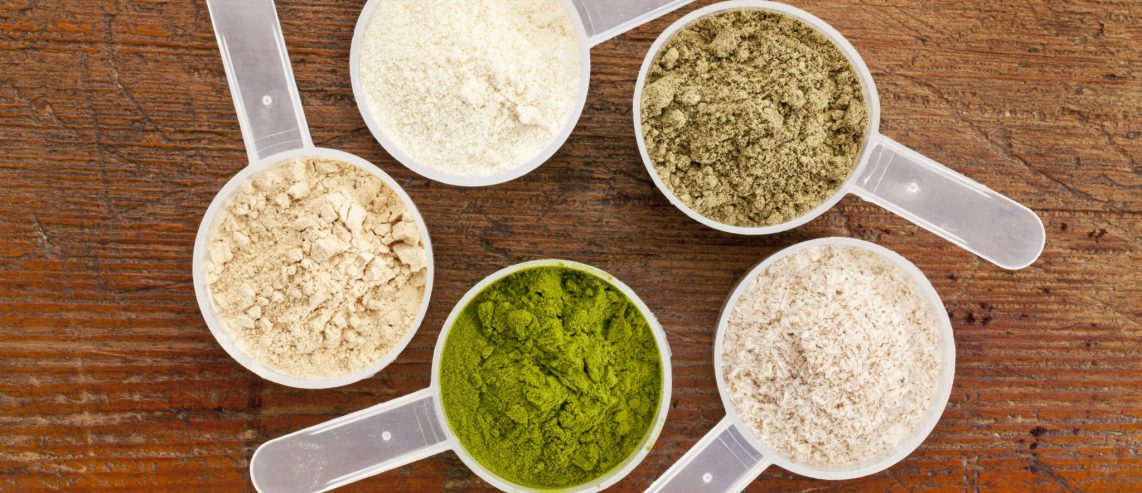Social media influencers rave about the ease and health effects of green powders. But nutrition experts say these benefits are overblown.
Green powders or “superfood” blends contain ground fruits, vegetables, grains, and algae. Similar products include fruit and vegetable supplements.
Some include prebiotics, probiotics, or digestive enzymes. They may contain popular herbs like ashwagandha or ginseng.
Many companies selling these products claim they can help you stay healthy and meet nutritional goals. They say just one scoop offers all the vitamins and minerals you need daily. Some blends claim benefits like increased energy, a boosted immune system, and stress relief.
But are these claims backed by licensed dietitians? Are green powders worth it?
Never Miss a Beat!
Subscribe to Our HealthBeat Newsletter!
Thank you for subscribing!
You can now select the specific newsletters you'd like to receive.
You are already subscribed.
Subscribe to more newsletters in our email preference center.
Sorry, an error occurred. Please try again later.
Get Healthy Tips Sent to Your Phone!
All About Green Powders
Trendy powder supplements may have some benefits akin to taking a daily multivitamin. But they’re not a substitute for whole fruits and vegetables. That’s according to Rachel Sproat, RDN, LDN, a registered dietitian at UPMC Western Maryland.
“They’re becoming popular because I think consumers worry about their fruit and veggie intake,” says Sproat. “That is good, and these products can be a very easy source of micronutrients.”
“But they do not fill in all the nutrient gaps in your health,” she added. “They are not a substitute for fruits and vegetables.”
Turning produce into powder strips it of some vitamins and minerals. And these supplements lack some needed micronutrients, antioxidants, and fiber. These are critical to proper digestion and gut health.
They’re also expensive. A one-month supply of a popular green powder can cost $80 or more.
“Think of how many fruits and vegetables you could buy with that,” says Sproat. “You can actually get more fiber from one apple at a much lower cost. If you want to improve your health, eat more whole fruits and vegetables.”
Potential Risks of Green Powders
The U.S. Food and Drug Administration does not test if green powders work or are safe.
The only testing done on supplements is voluntary and paid for by the supplier. Without this third-party testing, we don’t know what’s in the product or how much is there, Sproat says.
Look for third-party testing labels on the product. These may be from the National Sanitation Foundation (NSF) or United States Pharmacopeia (USP).
Even with third-party testing, though, many companies fail to list exactly what’s in their “complex” or “proprietary” blends, Sproat says.
“It doesn’t actually list what nutrients are in that blend, so this could be very dangerous,” she says.
This can lead to unintended interactions with your medicines. Or even health problems for people watching their sodium, potassium, or phosphorus intake.
There’s also little solid research on the benefits of green powder supplements.
Green powders, like multivitamins, often contain way more vitamins and minerals than the body needs.
“Marketing of these products often makes it seem like more is better,” says Sproat. “They’ll try to put ridiculous amounts of fruits and veggies in one pill or scoop.”
“But more is not always better, especially when you’re talking about your vitamins and minerals. There are upper limits for you to safely tolerate without side effects,” Sproat added. “You really want to consider the risks versus benefits.”
Consider the Big Picture
As a dietician, Sproat says there are several pillars of health and nutrition. Total wellness won’t be found in any single-scoop supplement.
Eating a well-balanced diet that supports your metabolism and lifestyle is key. Other factors that play an active role in overall nutritional health include:
- Quality sleep.
- Regular physical activity.
- Mental and emotional well-being.
“Diet trends are often focused on just one aspect. You need to consider the whole picture,” Sproat says. “When it comes to these types of supplements, it’s better to just eat your fruits and vegetables.”
About UPMC
Headquartered in Pittsburgh, UPMC is a world-renowned health care provider and insurer. We operate 40 hospitals and 800 doctors’ offices and outpatient centers, with locations throughout Pennsylvania, Maryland, New York, West Virginia, and internationally. We employ 4,900 physicians, and we are leaders in clinical care, groundbreaking research, and treatment breakthroughs. U.S. News & World Report consistently ranks UPMC Presbyterian Shadyside as one of the nation’s best hospitals in many specialties and ranks UPMC Children’s Hospital of Pittsburgh on its Honor Roll of America’s Best Children’s Hospitals. We are dedicated to providing Life Changing Medicine to our communities.
